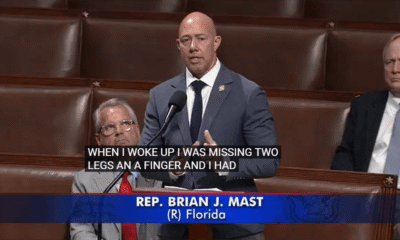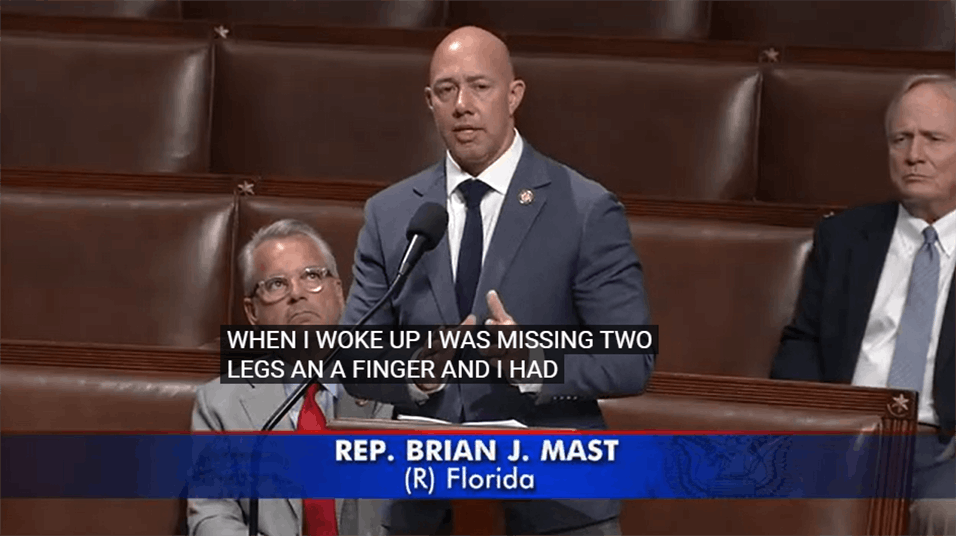featured
New Chicago Police Policy Discourages Searches Based On Marijuana Odor
Published
5 hours agoon

Chicago police officials intend to update city law enforcement guidance to discourage officers from searching vehicles based merely on the smell of raw, unburnt marijuana, according to documents filed in an ongoing lawsuit seeking reform.
The revised policy comes in the face of ongoing efforts to respond to a state Supreme Court ruling late last year that said police are justified in searching a vehicle if they smell raw marijuana. Justices wrote that the smell means it’s “almost certain” the unused product isn’t in sealed an odor-proof container, as is required by law.
Advocates and some lawmakers say the ruling is incongruous with a separate high court decision a few months earlier that found that the smell of burnt cannabis was insufficient cause to search a vehicle. That opinion said that there “are now a myriad of situations where cannabis can be used and possessed, and the smell resulting from that legal use and possession is not indicative of the commission of a criminal offense.”
In the state’s biggest city, the Chicago Police Department is responding to the changes in the legal landscape by amending its proposed policy and removing a reference to the unburnt cannabis ruling, known as People v. Molina, from an agency guidance document about police encounters and due process rights.
ACLU of Illinois (ACLU-IL), one of the parties in a federal court case seeking to reform Chicago PD, said in a court filing that it “applauds” the change, which it called “an improvement” over past guidance. It says the agreement prevents officers from “conducting an investigatory stop or search of an individual based solely on an officer smelling cannabis/marijuana without any other specific and articulable facts of criminal activity.”
“Additionally, CPD has now acknowledged that its officers cannot conduct vehicle searches based on the odor of raw cannabis unless and until they are adequately trained to distinguish between the odors of raw and burnt cannabis,” says the filing on behalf of a coalition of parties in the consent decree case.
“The recent change clears up potential confusion where officers may have believed they were entitled to search people (pedestrians or drivers) based on the odor of raw cannabis,” Alexandra K. Block, director of the ACLU-IL’s Criminal Legal System and Policing Project, said in an email to Marijuana Moment, adding the group and other parties in its suit were “pleased that a compromise was reached.”
Chicago PD representatives did not respond to requests for comment sent this week.
The newly proposed language would appear in a revised police document that Chicago PD has said would take effect sometime this year. ACLU-IL’s Block said she didn’t know precisely when the policy changes would kick in, but she noted that existing policy doesn’t mention marijuana whatsoever.
“In the meantime, the governing policy is the 2017 version of the Investigatory Stop Policy (which does not reference cannabis at all, given that it was adopted before cannabis possession for personal use was legalized in Illinois),” Block wrote.
A public draft version of the new policy document from December of last year mentions cannabis in two places: in a section on “Plain Smell Doctrine” and vehicle searches as well in as a second section on “prohibitions” around investigatory stops or searches.
The second reference said the Molina case was an “exception” to a general prohibition on “conducting an Investigatory Stop or search of a person based solely on an officer smelling cannabis/marijuana without any other specific and articulable facts of criminal activity.”
Revised language from May of this year, included as an exhibit in the consent decree case, removes the latter “exception” reference to Molina.
The document retains the first reference, which says in full:
“In People v. Molina (2024), the Supreme Court of the State of Illinois held that the odor of raw cannabis coming from a vehicle being operated on an Illinois highway, alone, is sufficient to provide police officers, who are trained and experienced in distinguishing between burnt and raw cannabis, with probable cause to perform a warrantless search of a vehicle.”
What advocates would prefer to see is a more sweeping legislative solution to the situation. ACLU-IL and others are pushing to a change to state law eliminating the requirement that cannabis in cars be packaged in odor-proof containers.
“If that change were made,” Block explained, “it would overrule People v. Molina and prohibit officers from searching cars based on the alleged odor of raw cannabis alone.”
“In the meantime, we also have suggested a change to CPD’s policy that would prohibit officers from asking for consent to search cars based on the odor of cannabis,” she added.
The new policy changes were first reported by local PBS affiliate WTTW.
Last month, a House committee in Illinois had an initial hearing on a Senate-passed bill that would clarify that police may not stop or detain drivers, or search their vehicles, based solely on the smell of cannabis.
But the House sponsor of the proposal—which would further remove a requirement that marijuana be transported in odor-proof containers—said at the time that he didn’t think it was yet ready to become law, adding that he’d like to see it held on the House floor while authors iron out concerns raised by law enforcement.
The legislation was since referred to the House Rules Committee but has not moved for more than a month.
—
Marijuana Moment is tracking hundreds of cannabis, psychedelics and drug policy bills in state legislatures and Congress this year. Patreon supporters pledging at least $25/month get access to our interactive maps, charts and hearing calendar so they don’t miss any developments.![]()
Learn more about our marijuana bill tracker and become a supporter on Patreon to get access.
—
Critics of the use of marijuana odor as probable cause for vehicle stops and searches argue that that police disproportionately enforce drug laws against Black Americans and other people of color, and allowing stops based on the claimed smell of cannabis could increase enforcement bias.
A number of other states have passed laws around the smell of cannabis to justify police searches. Prior to legalization taking effect in Maryland, for example, Gov. Wes Moore (D) allowed a bill to become law that prevents police from using the odor or possession of cannabis alone as the basis of a search. GOP lawmakers unsuccessfully attempted to reverse that policy.
The Minnesota Supreme Court also ruled last year that police can’t use the smell of cannabis alone to justify vehicle searches—a ruling that has since been codified by the legislature and signed into law by Gov. Tim Walz (D).
And in New York last month, Gov. Kathy Hochul (D) signed a budget bill into law that notably does not include a controversial marijuana provision she proposed that would have allowed police to use the smell of marijuana as probable cause that a driver is impaired and then force them to take a drug test.
Amendments by lawmakers removed the provision, which a coalition of 60 reform groups had argued in a letter to Hochul and top lawmakers would “repeat some of the worst harms of the War on Drugs” and allow law enforcement to “restart unconstitutional racial profiling of drivers.”
Meanwhile in Illinois earlier this year, Gov. J.B. Pritzker (D) touted the state’s record-setting $2 billion in marijuana sales in 2024, applauding the “thriving” industry while criticizing the “proliferation of the unregulated intoxicating hemp market.”
“The numbers are clear: Five years after we legalized adult use cannabis in Illinois, we’re seeing the economic impact of a thriving cannabis industry,” he said.
But the governor said while he’s “pleased with the continued success of cannabis sales and revenues in Illinois, the market is being undermined by the proliferation of the unregulated intoxicating hemp market.”
“Licensed cannabis businesses comply with strict state regulations, pay significant taxes, and undergo rigorous product testing,” he said. “This unchecked market not only undercuts legal operators but also puts consumers at risk by flooding the industry with untested, potentially unsafe products.”
Pritzker has been vocal about his concerns over the unregulated hemp market, and he said in January that he was “tremendously disappointed” that a bill to impose restrictions on the sale of intoxicating hemp products that he advocated for stalled out in the legislature.
Separately, a report from the state Cannabis Regulation Oversight Office that was released late last year detailed how 2024 saw the single-largest expansion of stores since Illinois began opening medical marijuana dispensaries, with 82 new retailers opening for business—many of which are owned by social equity licensees.
“As additional dispensaries open their doors, that increased competition leads to increased availability of product and better prices for consumers—just as we anticipated,” Cannabis Regulation Oversight Officer Erin Johnson said on Thursday. “We look forward to the continued growth and success of Illinois’ cannabis industry, leading to further economic development and public awareness and support for responsible consumption.”
Last summer, officials also announced the award of $35 million in grants to 88 local organizations, using funds generated from taxes on adult-use marijuana sales to support community reinvestment efforts. Since launching the program, Illinois has awarded over $244 million in marijuana revenue-funded grants to that end.
The governor has frequently joked about the fact that Illinois is benefiting from the lack of legal access in surrounding states. Going back to his State of the State address in 2020, he said out-of-state dollars will end up coming to Illinois and paying taxes for cannabis products that bolster the state’s coffers.
State senators last year also took up a bill that would have legalized psilocybin and allowed regulated access through service centers, where adults could use the drug in a supervised setting.
Read the May 2025 version of the Chicago Police Department due process policy guidance below:

Author: mscannabiz.com
MScannaBIZ for all you Mississippi Cannabis News and Information.
You may like
-


US Lawmaker Who Lost Limbs in War Convinces House to Allow Veteran Access to Cannabis
-


Tilray Medical Publishes Pioneering Research on Pharmacokinetics of THC, CBD Formulations
-


Cannabis companies to sell products at some CT outdoor venues – NBC Connecticut
-


Aurora Expands Patient Access to Medical Cannabis in Canada With Extended Compassionate Pricing Program
-
Thailand starts banning the sale of cannabis without a prescription National Post
-


Trulieve Opening 162nd Florida Medical Cannabis Dispensary in Oakland Park
featured
US Lawmaker Who Lost Limbs in War Convinces House to Allow Veteran Access to Cannabis
Published
30 minutes agoon
June 27, 2025
Before being elected to Congress, U.S. House Rep. Brian Mast, R-Fla., was unconscious for more than a week in 2010, when he woke up missing two legs and a finger at Walter Reed Medical Center in Bethesda, Md.
The U.S. Army veteran was deployed to Afghanistan, where a roadside improvised explosive device (IED) in Kandahar resulted in catastrophic injuries during his work as a bomb disposal expert under the Joint Special Operations Command.
Mast recounted his experience as a double-leg amputee while introducing an amendment June 25 on the U.S. House floor.
“What I woke up to was being on a laundry list of medications,” he said. “I had an epidural. I had oral morphines and oxys. I had antidepressants, anti-inflammatories, heavy sleep sedatives. I had a Dilaudid drip and a number of other things that I can’t even remember to this point—all at once. I had not been on any of these things before in my life.”
Mast provided his testimony as a support mechanism to allow military veterans access to medical cannabis. He and Rep. Dave Joyce, R-Ohio, who co-chair the Congressional Cannabis Caucus, were successful on June 25 in attaching an amendment via a voice vote to the Military Construction, Veterans Affairs, and Related Agencies (MilCon-VA) Appropriations Act for fiscal year 2026.
The amendment would authorize the Department of Veterans Affairs (VA) to provide recommendations to veterans to participate in state-licensed medical cannabis programs.
“My father was wounded, left for dead in World War II, and he came home,” Joyce said on the House floor. “I know what it takes for these people and the hurt that they’ve gone through on behalf of their country, and they deserve every option available to bring them back to what they were before they left on our behalf.”
The GOP-controlled House passed the underlying appropriations legislation in a 218-206 vote with two Democrats joining the majority. The bill would provide more than $152 billion in overall discretionary spending and $300 billion for mandatory programs, fully funding veterans’ medical care at $131.4 billion, according to the House Appropriations Committee.
While the bill wouldn’t fund medical cannabis care, Mast’s amendment would authorize the VA to provide recommendations to veterans to participate in state-licensed medical cannabis programs.
While 40 states have legalized medical cannabis, federal law forbids the Veterans Health Administration (VHA) from completing forms or registering veterans for participation in state-sanctioned cannabis programs—most of which require a doctor’s recommendation and include post-traumatic stress disorder as a qualifying condition.
The VHA is the largest integrated health care system in the U.S., providing services to more than 9 million veterans at roughly 1,400 facilities nationwide.
Under the status quo, veterans often have to choose between their VA doctor and access to medical cannabis, and “that’s wrong,” Mast said.
After coming home from Afghanistan, Mast said he went through a gamut of withdrawal symptoms while coming off narcotics, from extreme irritability to extreme bowel movements and insomnia.
“The state that these narcotics—in many cases—leave our veterans [in] are at the most extreme end of it: states of suicide,” he said. “At other ends of it, just extreme states of dissatisfaction and lacking purpose in life. And, in some cases, it does leave them in a better condition. But the point I’m making with this true story is that veterans need to have options outside of these narcotics.”
While Mast introduced the Veterans Equal Access Act on Feb. 14, that standalone legislation has yet to receive a subcommittee hearing. By successfully attaching the nuts and bolts of the two-page legislation as an amendment to the MilCon-VA bill, Mast has bypassed the committee process and fast-tracked the underlying intent.
Specifically, the amendment states that none of the funds appropriated or otherwise made available to the VA may be used to enforce Veterans Health Directive 1315 as it relates to:
- The policy stating that “VHA providers are prohibited from completing forms or registering veterans for participation in a state-approved marijuana program”;
- The directive for the “Deputy Under Secretary for Health for Operations and Management” to ensure that “medical facility directors are aware that it is VHA policy for providers to assess veteran use of marijuana but providers are prohibited from recommending, making referrals to or completing paperwork for veteran participation in state marijuana programs”; and
- The directive for the “VA Medical Facility Director” to ensure that “VA facility staff are aware of the following” … “[t]he prohibition recommending, making referrals to or completing forms and registering veterans for participation in state-approved marijuana programs.”
“[Veterans] need to have the ability when they’re being seen by their primary care physician inside of the VA to have discussions about whether cannabis is or is not right for them,” Mast said. “They need to be able to talk to their medical provider about what they fill out on the paperwork, what is the right dosage amount, how that’s going to interact with any other medications that they might be on, how it might affect their blood pressure or other things going on with them personally.
“And if we’re not giving that option to have that conversation at the most serious level without worrying about some kind of reprisal for the doctor or otherwise, then we are doing our veterans a disservice.”
Should Mast’s amendment remain in the final enactment of the MilCon-VA Appropriations Act, it could have broader implications for federal reform.
Federally funded VA doctors providing recommendations or prescriptions for medical cannabis would add to cannabis rescheduling advocates’ argument that the plant has “currently accepted medical use” in the U.S. and, therefore, cannot be classified as a Schedule I drug under the Controlled Substances Act.
But that wasn’t on Mast’s mind during this Wednesday’s floor session.
“The fact of the matter is, while I have heard of many of my brothers and sisters in arms being in a state of suicide because of the narcotics they’ve been on, I’ve yet to hear about any of them attributing a state of suicide to the cannabis that they have had as a part of their life,” he said.

Author: mscannabiz.com
MScannaBIZ for all you Mississippi Cannabis News and Information.
featured
Tilray Medical Publishes Pioneering Research on Pharmacokinetics of THC, CBD Formulations
Published
2 hours agoon
June 27, 2025
[PRESS RELEASE] – NEW YORK, June 26, 2025 – Tilray Medical, a division of Tilray Brands Inc. and a global leader in medical cannabis, empowering the therapeutic alliance between patients and health care practitioners to make informed individualized health decisions, announced the publication of a scientific study. This new research focuses on comparing the bioavailability of different cannabinoid formulations, taking a step forward in the understanding of medical cannabis.
The study aimed to assess the pharmacokinetic parameters and relative bioavailability of two D9-tetrahydrocannabinol: cannabidiol (THC:CBD) formulations:
- an orally administered: Tilray THC:CBD extract; and
- an oromucosally administered nabiximols formulation.
This pilot crossover study counterbalanced:
- 1 mL of orally administered Tilray THC:CBD extract (10 mg/mL each of THC and CBD); and
- oromucosally administered nabiximols (four sprays of 2.7 mg THC and 2.5 mg CBD per spray, for a total dose of 10.8 mg THC and 10 mg CBD).
Blood samples were obtained pre-dose and at 16 post-dose time points over 24 hours. Pharmacokinetic parameters were calculated for THC, 11-hydroxy-tetrahydrocannabinol (11-OH-THC), and CBD.
Conducted with 12 healthy volunteers (six male, six female) under fasting conditions, the results revealed that the Cmax for THC and CBD was significantly higher for the Tilray THC:CBD extract compared to nabiximols, and neither Tmax nor AUC was significantly different for the two treatments. Interestingly, the Cmax for nabiximols was significantly higher in males compared to females. Under both treatment conditions, THC and CBD were undetectable 24 hours post-dose, and 11-OH-THC was markedly reduced from its peak. Notably, no serious adverse events were reported.
This pilot study shows that oral administration of Tilray THC:CBD extract formulation achieved higher THC and CBD concentrations within a shorter timeframe compared to the oromucosal delivery of nabiximols. These findings may have significant implications for clinical populations using these formulations therapeutically.
José Tempero, Tilray’s medical director, said, “By advancing our understanding of cannabinoid pharmacokinetics, we are better equipped to develop formulations that can significantly enhance therapeutic outcomes. We extend our heartfelt thanks to our partners in this study for their invaluable contributions and collaboration.”
Denise Faltishchek, chief strategy officer and head of International at Tilray, said, “This pioneering research exemplifies our commitment to advancing the science of medical cannabis. By deepening our understanding of cannabinoid pharmacokinetics, we strive to enhance the therapeutic potential of our products, ultimately improving the quality of life for patients globally. Our goal is to continue driving innovation and providing patients with safe, effective, consistent and reliable medical cannabis solutions for patients around the world.”
Tilray Medical is a leading provider of EU-GMP-certified and pharmaceutical-grade medical cannabis products, having supplied more than 20 countries with a comprehensive portfolio of THC and CBD products. Tilray has supported medical trials globally, across Europe, Canada, the United States, Australia, and Latin America, studying the efficacy of medical cannabis as a treatment for indications including pediatric epilepsy, refractory pediatric epilepsy, cancer-induced nausea and vomiting, HIV, essential tremor, breast cancer disorders, post-traumatic stress disorder and alcohol-use disorders.

Author: mscannabiz.com
MScannaBIZ for all you Mississippi Cannabis News and Information.
featured
Aurora Expands Patient Access to Medical Cannabis in Canada With Extended Compassionate Pricing Program
Published
3 hours agoon
June 27, 2025
[PRESS RELEASE] – EDMONTON, Alberta, June 26, 2025 – Aurora Cannabis Inc., the Canadian-based leading global medical cannabis company, is pleased to have recently expanded the eligibility of its medical compassionate pricing program in Canada.
As part of the company’s ongoing commitment to making medical cannabis more accessible to patients, the yearly income eligibility of the program has increased from CA$40,000 to CA$60,000 for Aurora patients through AuroraMedical.com.
“As over half of the country’s adult population fits within this income threshold, our compassionate pricing program represents the most accessible, inclusive pricing plan to access medical cannabis in Canada,” said Geoff Hoover, senior vice president of Canadian Commercial at Aurora. “We’re committed to breaking down barriers to access high-quality medical cannabis, and this change empowers more patients to explore different treatment options at pricing they can afford.”
The changes to the compassionate pricing program are available alongside new medical cannabis products, including:
- Aurora | Mediora Minis – Cannatonic CBD Flower, Sativa (10mg)
- Daily Special | Sativa J’s – THC Pre-Rolls, Sativa (7 x 0.3g)
- WMMC | Seasonal Stash Petro Biscuit – THC Flower, Indica (10mg)
In addition to the compassionate pricing program, Aurora offers resources to seniors, pediatric patients, veterans, first responders, and others seeking care through medical cannabis. Patients can visit www.auroramedical.com for more information and to connect with the Aurora client care team for further support.

Author: mscannabiz.com
MScannaBIZ for all you Mississippi Cannabis News and Information.

US Lawmaker Who Lost Limbs in War Convinces House to Allow Veteran Access to Cannabis

Tilray Medical Publishes Pioneering Research on Pharmacokinetics of THC, CBD Formulations

Cannabis companies to sell products at some CT outdoor venues – NBC Connecticut

Aurora Expands Patient Access to Medical Cannabis in Canada With Extended Compassionate Pricing Program
Thailand starts banning the sale of cannabis without a prescription National Post

Trulieve Opening 162nd Florida Medical Cannabis Dispensary in Oakland Park

He Built a $800 Million Cannabis Business—Now He’s Tackling the Blue-Collar Tech Gap with AI

The best strains for dabbing

New Chicago Police Policy Discourages Searches Based On Marijuana Odor

Police say Port Barrington man, 77, had explicit video chat with child, offered pot for sex acts – Shaw Local

Thailand Takes U-Turn on Cannabis Decriminalization, Reinstalls Drug Penalties

First legal cannabis dispensary to open in Genesee County

Matt Gaetz Pictured Reviewing Contract To Provide Top Marijuana Company With ‘Administration-Related’ Support Amid Rescheduling Push
Thailand starts banning the sale of cannabis without a prescription

Fire products for fireworks, grilling & chilling this July 4th weekend

AYR Wellness Has No Estimate for Q1 2025 Interim Filings; Trading Remains on Hold

Thailand starts banning the sale of cannabis without a prescription

Cannabis Seeds Launched To Orbit By SpaceX Crash Into Sea, Setting Back Mission To Grow Marijuana On Mars

Thailand starts banning the sale of cannabis without a prescription

4Front Ventures’ Receivership Proceedings Progress; Board Members Resign

Security guard shot dead outside South LA cannabis dispensary

Federal Court Rules Arkansas’ Ban on Hemp-Derived THC Can Move Forward

Mobile orders for cannabis products available at Hartford HealthCare Amphitheater

Mike Tyson And Other Celebs Push Trump To Go Further On Marijuana Than Biden By Expanding Clemency And Enacting Rescheduling

Alert: Department of Cannabis Control updates data dashboards with full data for 2023

Connecticut Appoints The US’s First Cannabis Ombudsperson – Yes there is a pun in there and I’m Sure Erin Kirk Is Going To Hear It More Than Once!

5 best CBD creams of 2024 by Leafly

Free delta-9 gummies from Bay Smokes
New Study Analyzes the Effects of THCV, CBD on Weight Loss

EU initiative begins bid to open access to psychedelic therapies

Mississippi city official pleads guilty to selling fake CBD products

Curaleaf Start Process Of Getting Their Claws Into The UK’s National Health System – With Former MP (Resigned Today 30/5/24) As The Front Man

May 2024 Leafly HighLight: Pink Runtz strain

5 best autoflower seed banks of 2024 by Leafly

Horn Lake denies cannabis dispensary request to allow sale of drug paraphernalia and Sunday sales | News

Discover New York’s dankest cannabis brands [September 2024]

Press Release: CANNRA Calls for Farm Bill to Clarify Existing State Authority to Regulate Hemp Products

Nevada CCB to Accept Applications for Cannabis Establishments in White Pine County – “Only one cultivation and one production license will be awarded in White Pine County”

Local medical cannabis dispensary reacts to MSDH pulling Rapid Analytics License – WLBT

6 best CBD gummies of 2024 by Leafly

5 best THC drinks of 2024 by Leafly

The Daily Hit: October 2, 2024

5 best delta-9 THC gummies of 2024 by Leafly

Weekly Update: Monday, May 13, 2024 including, New Guide for Renewals & May Board meeting application deadline

People In This State Googled ‘Medical Marijuana’ The Most, Study Shows

Thailand: Pro-cannabis advocates rally ahead of the government’s plan to recriminalize the plant

PRESS RELEASE : Justice Department Submits Proposed Regulation to Reschedule Marijuana

Press Release: May 9, STIIIZY and Healing Urban Barrios hosted an Expungement Clinic & Second Chance Resource Fair
Trending
-

 California Cannabis Updates1 year ago
California Cannabis Updates1 year agoAlert: Department of Cannabis Control updates data dashboards with full data for 2023
-

 Breaking News1 year ago
Breaking News1 year agoConnecticut Appoints The US’s First Cannabis Ombudsperson – Yes there is a pun in there and I’m Sure Erin Kirk Is Going To Hear It More Than Once!
-

 best list11 months ago
best list11 months ago5 best CBD creams of 2024 by Leafly
-

 Bay Smokes12 months ago
Bay Smokes12 months agoFree delta-9 gummies from Bay Smokes
-

 cbd1 year ago
cbd1 year agoNew Study Analyzes the Effects of THCV, CBD on Weight Loss
-

 Business9 months ago
Business9 months agoEU initiative begins bid to open access to psychedelic therapies
-

 Mississippi Cannabis News1 year ago
Mississippi Cannabis News1 year agoMississippi city official pleads guilty to selling fake CBD products
-

 Breaking News1 year ago
Breaking News1 year agoCuraleaf Start Process Of Getting Their Claws Into The UK’s National Health System – With Former MP (Resigned Today 30/5/24) As The Front Man




